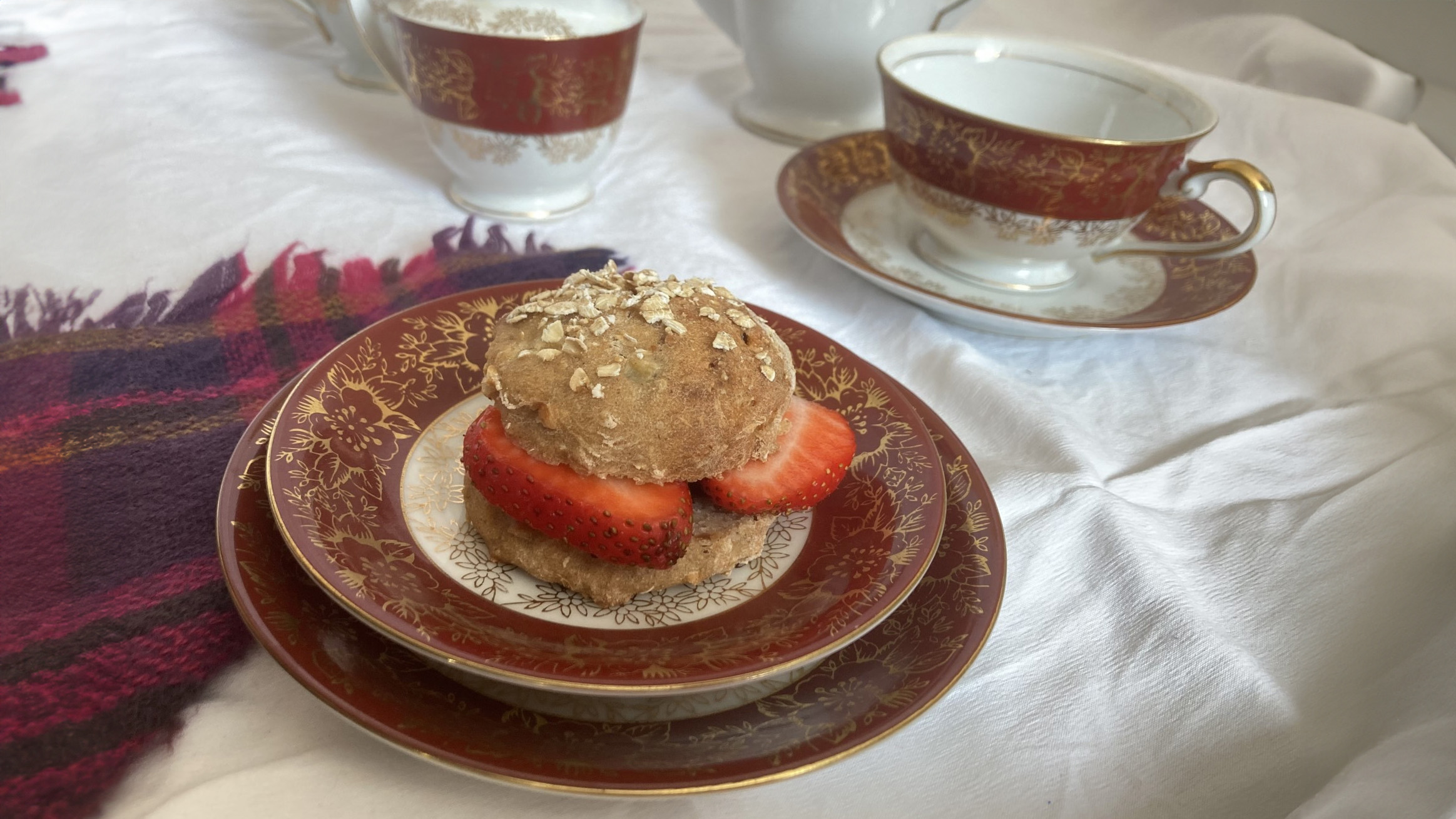These Pear and Hazelnut scones taste like an Autumnal walk in Scotland. Juicy pears and earthy hazelnuts make them best enjoyed warm with slices of strawberries. They are lower in sugar and saturated fat than traditional scones. Enjoy!
Serves: 8
Dietary: Suitable for semi-vegetarian, peanut-free
Contains Gluten (flour, oats, baking powder), egg, milk (blended butter, milk), tree nuts (hazelnuts)
May Contain
Preparation time: 15 minutes
Cooking time: 20 minutes
INGREDIENTS
2 cups (250 g) plain flour (225 g + 4 Tbsp for dusting)
3 g granulated sweetener
50 g blended butter spreadable *
1 large egg
1/3 Cups (50 g) chopped hazelnut
1 tsp baking powder
1 tsp cinnamon
4 Tbsp (60 g) skimmed milk + extra for washing tops
1 small (120 g) pear, finely diced (fresh or tinned)
1 Tbsp (10 g) oats
- Over 70% fat, mainly unsaturated
METHOD
- Put the flour (saving 4 Tbsp for later), baking powder, sweetener and cinnamon into a bowl.
- Rub in the cold blended butter spread.
- Slowly add the egg and milk until a dough is formed (you may not need all of the milk)
- Mix in the chopped hazelnuts and pear.
- Place on a lightly floured surface and roll out to a thickness of approximately 4 cm.
- Cut out using a 7 cm diameter round cutter.
- Lightly wash with milk. Sprinkle with the oats
- Place into an oven at 220˚C/200˚C Fan/430˚F/Gass Mark for 15 – 20 minutes or until golden brown.
- It is best served slightly warm with slices of fresh strawberries.
This recipe was donated by Angela Thorpe, a student dietitian at the University of Winchester.
NUTRITION INFORMATION
Per scone:
Total calories: 225 kcal
Fat: 10.0 g
of which saturates: 2.8 g
Carbohydrate: 27.0 g
of which sugars: 2.5 g
Fibre: 2.3 g
Protein: 5.3 g
Salt: 0.27 g
NUTRITION FACTS
- These Pear and Hazelnut scones are low in sugar, a good source of fibre and protein, and lower in saturated fat than the traditional recipe as they use blended butter rather than full butter.
- This recipe is a good source of phosphorus, manganese, vitamin E, and B vitamins (Thiamin, niacin, and biotin).
- Manganese is important in the healing process of wounds and may improve bone health in combination with other nutrients.
VARIATIONS
- These scones would be delicious with apple or plum instead of pear pieces.
Consumer tested by: Brian Lynn
Checked by: Kathy Lewis, R.Nut., Registered Nutritionist.
© 2023 The Caroline Walker Trust

